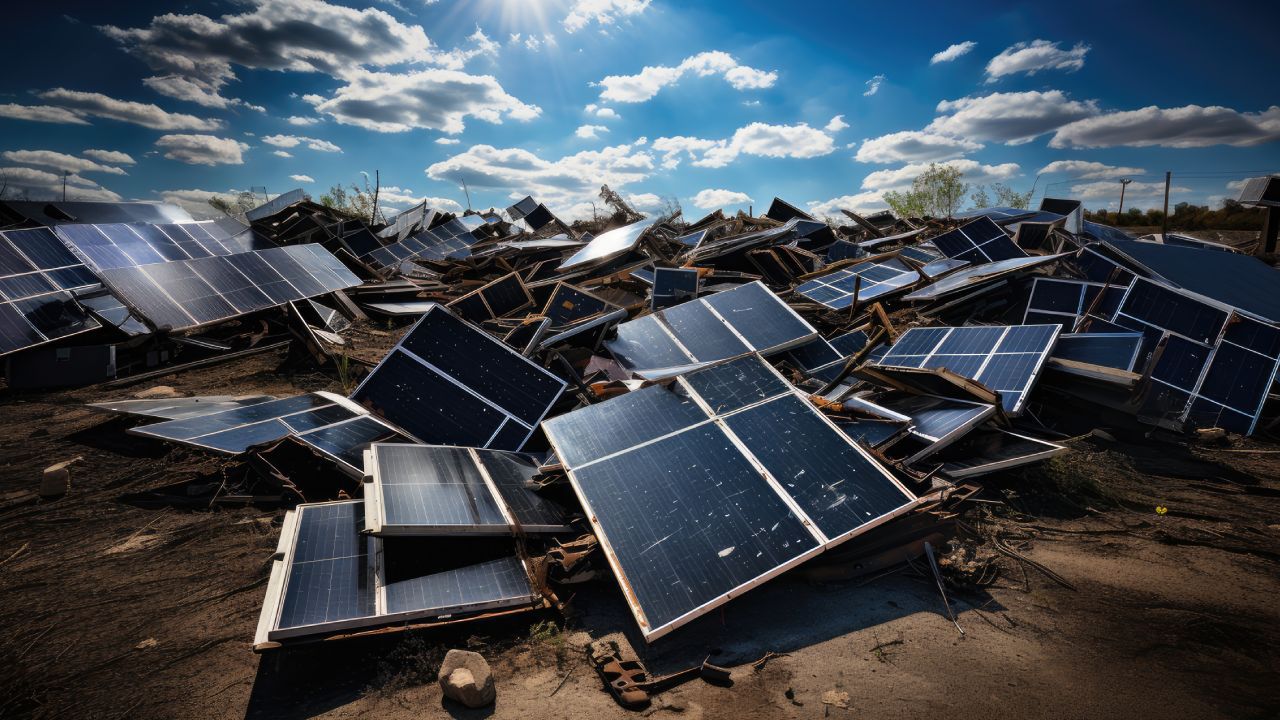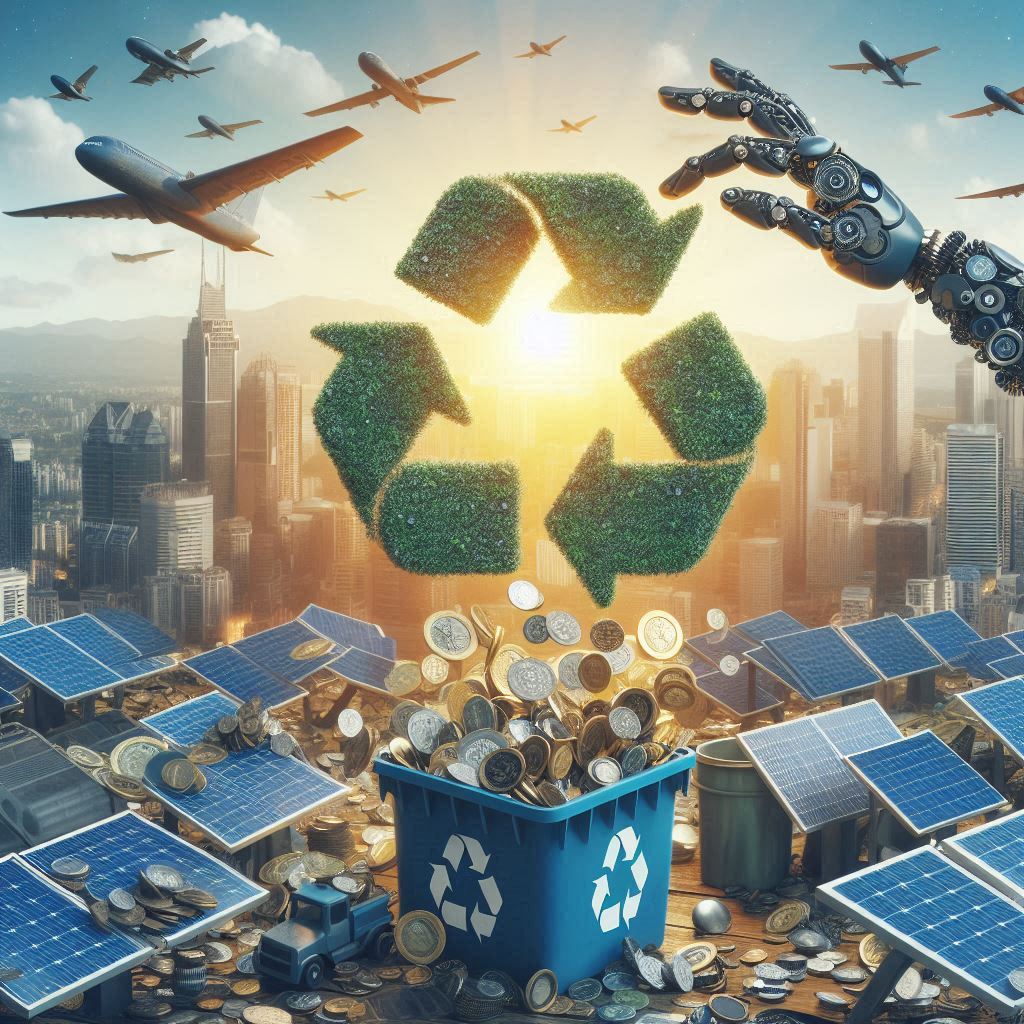
Recycle and Shift Renewables
Our Vision &
Roadmap
Building a sustainable future for solar panel recycling in Africa. Technological improvements on solar components is likely to affect the volumes of solar waste in the future. As solar components overtime are able to generate higher capacities of electricity, smaller components in terms of weight are likely to be adopted in the future. We leveraged on historical information to discount the projections made to reflect further technological improvements on the solar components. We were able to find information on the difference in capacity generation for solar panels and lithium-ion batteries in the last ten years.
Growing Solar Adoption, Growing Waste
Key Stats:
- 43% of the Nigerian population lack access to grid electricity, resulting in increased solar adoption.
- The total import value of solar components in Nigeria over three years is estimated at USD 518 million, with solar panels accounting for 48.6%, and the consequence is rising e-waste.
Reality:
Nigeria currently lacks a well-established system for collection, separation, storage, transportation and disposal of
solar components waste as well as adequate enforcement and monitoring of regulations to hazardous waste.


The Hidden Cost
Key Risks:
- Lead acid batteries present hazards such as lead poisoning, skin corrosion from sulfuric acid, and air and water contamination.
- Lithium-ion batteries can cause lung irritation and present a fire hazard, as well as contribute to air pollution.
- Currently, most solar waste is handled by informal players who often dismantle and dispose of components improperly.
- Only 1% of solar waste is recycled, while a significant portion is sold to scavengers (88%), dumped in landfills (4%), or given away (6%).
- Nigeria lacks a well-established system for the collection, separation, storage, transportation, and proper disposal of e-waste.

Our Vision for Change
Key Stats:
- The total volume of solar waste in Nigeria is projected to increase from 3.3 million kilograms in 2021 to 60.3 million kilograms by 2040, representing a CAGR of 15.6%.
- There is an opportunity for formal players to enter the solar waste management sector.
- Our recycling plant can help create new industries, enable the re-use of recycled components, and improve financing for the solar waste value chain.
- There are very few formal recycling companies in Nigeria, mainly experienced in battery recycling, highlighting the need for comprehensive recycling solutions.
- The profitability of solar recycling is expected to grow steadily at a CAGR of 58.4% as the volume of solar waste increases.
- Recycling presents potential for generating foreign exchange earnings through export of collected waste or recycled materials.
Our Solutions Process

Collection
We partner with solar companies and installers to collect end-of-life solar panels and batteries.
Processing
Using advanced technology, we separate and process materials for reuse in manufacturing.

Distribution
Recycled materials are distributed to manufacturers, creating a sustainable circular economy.
Meet Our Founder
Olaniran
Ololade
Ololade Olaniran is a dynamic professional with a passion for sustainability, innovation, and renewable energy solutions. With a multidisciplinary background in business development, research, and compliance, Ololade has cultivated a career that bridges cutting-edge practices with impactful solutions to real-world problems. As a Compliance Team Lead at Oraimo Technology, he has pioneered initiatives that improved market penetration and championed the adoption of energy-efficient and renewable products in underserved regions.
Driven by the urgent need to address Nigeria’s growing solar waste problem, Ololade is leveraging his expertise in project leadership, workplace safety, and renewable energy to develop a groundbreaking solar recycling plant. His vision is to transform solar waste management in Nigeria, turning discarded panels and batteries into reusable resources, while promoting sustainable practices and environmental stewardship across the country.
An advocate for the UN’s Sustainable Development Goals (SDGs), Ololade combines his professional experience with his commitment to social impact. Through innovative thinking and collaboration, he aims to create a cleaner and more sustainable future for Nigeria and beyond.
This mission reflects his belief that renewable energy is not only a tool for progress but also a responsibility to future generations.


